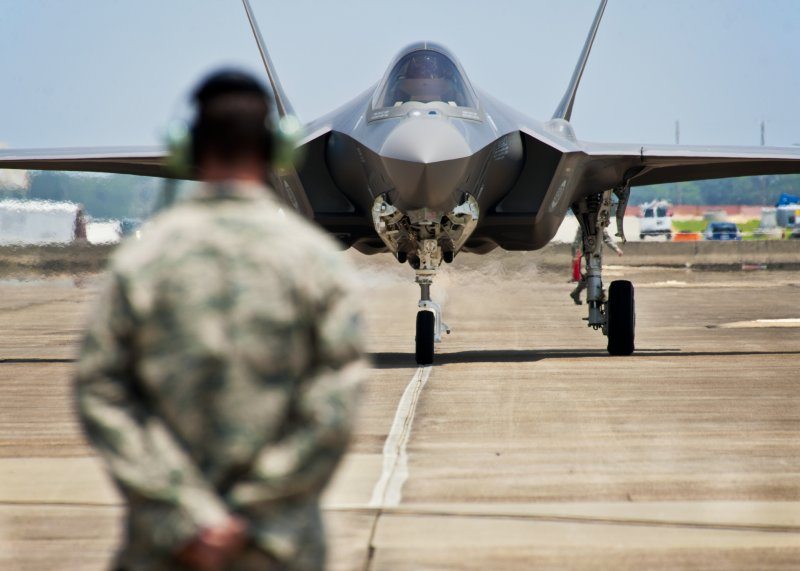The United States would be prepared to sell India the new F-35 fighter jet, the Pentagon said Wednesday, after New Delhi rejected a US offer of older aircraft in a major competition this year.
In a report to Congress on US defense ties with India, the Pentagon said India was a vital partner and that Washington wanted to bolster security cooperation with New Delhi, including joint exercises and high-tech arms sales.
In the first round of a contest for a combat aircraft contract, India in April shortlisted France’s Dassault and the European Eurofighter consortium while rejecting the US offer of F-16 and F-18 jets.
“Despite this setback, we believe US aircraft, such as the Joint Strike Fighter (JSF), to be the best in the world,” said the Pentagon report, referring to the radar-evading F-35 jet.
“Should India indicate interest in the JSF, the United States would be prepared to provide information on the JSF and its requirements… to support India’s future planning,” it said.
Mindful of China’s rise and growing military reach, President Barack Obama has placed a high priority on deepening ties with India.
The US-India defense relationship has expanded rapidly over the past decade and the administration sees India as a natural partner and global “player,” Robert Scher, deputy assistant secretary of defense for South and Southeast Asia, told reporters.
India has made no request for more information on the F-35 but the US invitation was “an example of the high regard that we hold India’s military modernization,” Scher said.
In the April contest for a new multi-role fighter for India, Rafale and the Eurofighter Typhoon beat out US aerospace giants Boeing and Lockheed Martin as well as Sweden’s Saab AB and the Russian makers of the MiG 35.
The US report noted that India is working with Russia on developing a fifth-generation fighter aircraft.
The Pentagon touts the F-35 Joint Strike Fighter as the premier fifth-generation fighter equipped with stealth technology, but the program faces rising costs, with a price tag of nearly $150 million each.
The two US senators that asked the Defense Department for the report welcomed the document but said Washington needed to work to expand its security relationship with India.
“While the report shows that tremendous progress has been made in military-to-military relations over the past ten years, we believe that there is much more that can be done,” Senator Joe Lieberman said in a statement.










